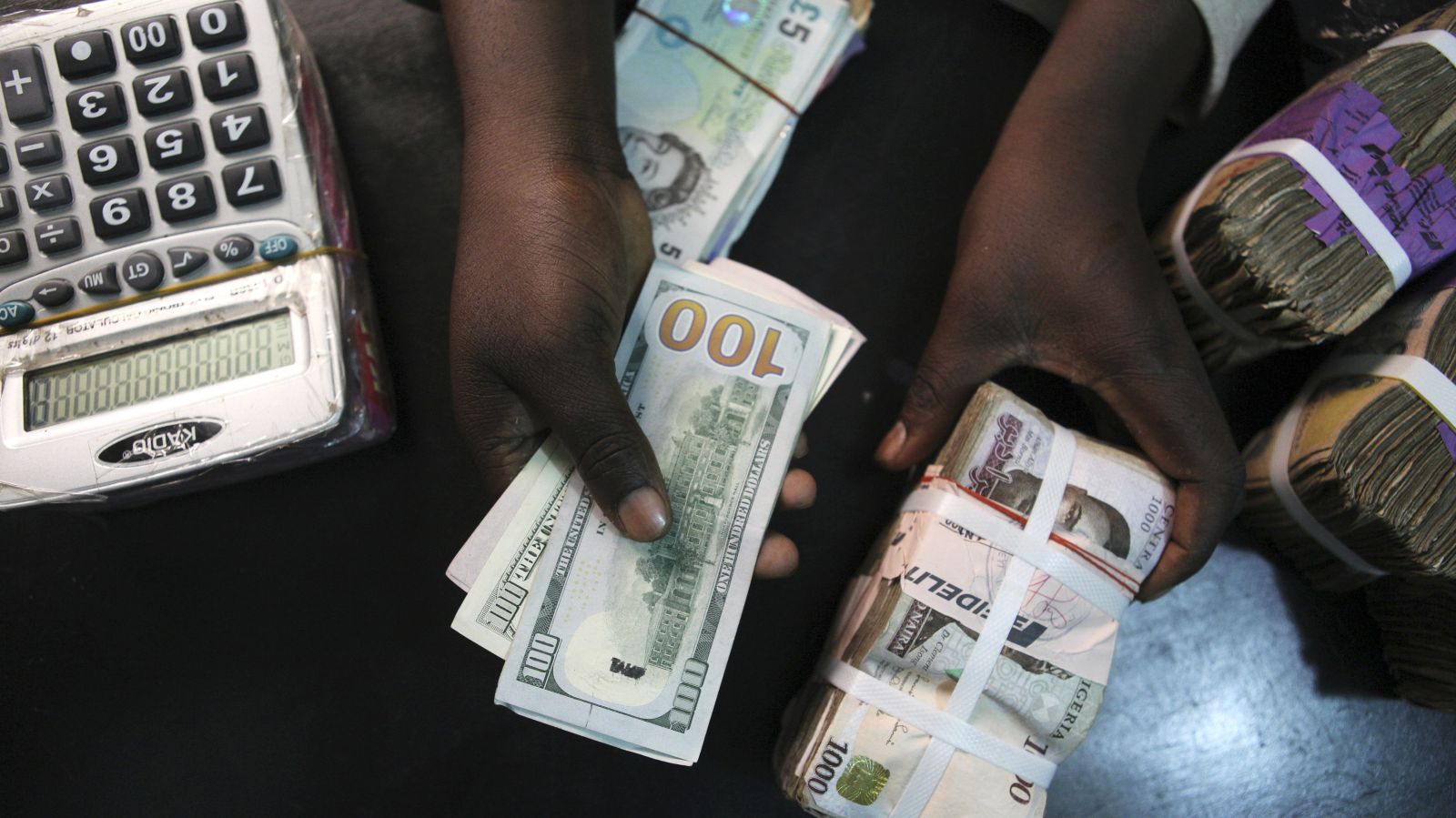Nigeria’s currency the naira depreciated further in the parallel market as it solde between N252 and N260 to dollar no thanks to the exclusion of some bureaux de change operators from dollar sales by the Central Bank of Nigeria on Wednesday.
This caused the naira to swoon further down to the range of N252-60 in the unofficial window.
By Tuesday, the currency exchanged at a little over N251. The local currency was trading at 198.97 to the dollar on the official interbank market, close to a rate at which it has been pegged since February.
That’s 24 percent weaker than the official rate of 198.52 per dollar as of 12:56 p.m. in Lagos.
Bloomberg reports that only about 1,200 of 3,000 currency-exchange operators received the amount of dollars they requested from the central bank last week, Gwadabe said by phone from Lagos. “From what we see, the central bank is still unable to meet majority demand,” he said.
President of Nigeria’s Bureau De Change Association blames the development to the a shortage of dollars on the unofficial market which forced the naira down further.
“We are in contact with the Central Bank to resolve issues around the exclusion of some of our members from the forex sales and we are expecting positive response,” Gwadabe was quoted as saying..
Another BDC operator Michael Odoh, said the sitution was compounded when the CBN reduced the amount of dollar sold to bureaux de change at its twice-weekly intervention, and went further to cut the intervention to once a week now.”
Two calls to the mobile phone of the bank’s spokesman, Ibrahim Mu’azu, didn’t connect when Bloomberg sought comment
Policy makers are under pressure to devalue the naira after this year’s 32 percent plunge in oil, which accounts for about 70 percent of government revenue, contributed to the 14 percent slide in Nigeria’s reserves in 2015 to $29.6 billion. The nation’s official exchange rate has been kept at 198-199 per dollar since March after the central bank restricted the ability of lenders to buy foreign currency.
In June, the monetary authority stopped importers of about 40 items, including wheelbarrows and glass, from obtaining dollars.
The Abuja-based central bank will further tighten rules on retail dollar sales, according to a circular dated Nov. 30 and posted on its website Friday. It ordered that from Jan. 1, persons selling the U.S. currency in amounts of more than $10,000 to a foeign-exchange bureau must disclose the source, while bureaus are banned from transacting business outside their registered offices.
“Definitely, the naira is in trouble with these tight rules,” Gwadabe said. “It will worsen the scarcity” of dollars, he said
Money changers met with the central bank on Dec. 8 to “discuss the difficulties in ensuring availability of dollars,” Gwadabe said. While policy makers “agreed to make more dollars available” to reduce tension, they have yet to do so, he said.
— with agency reports














